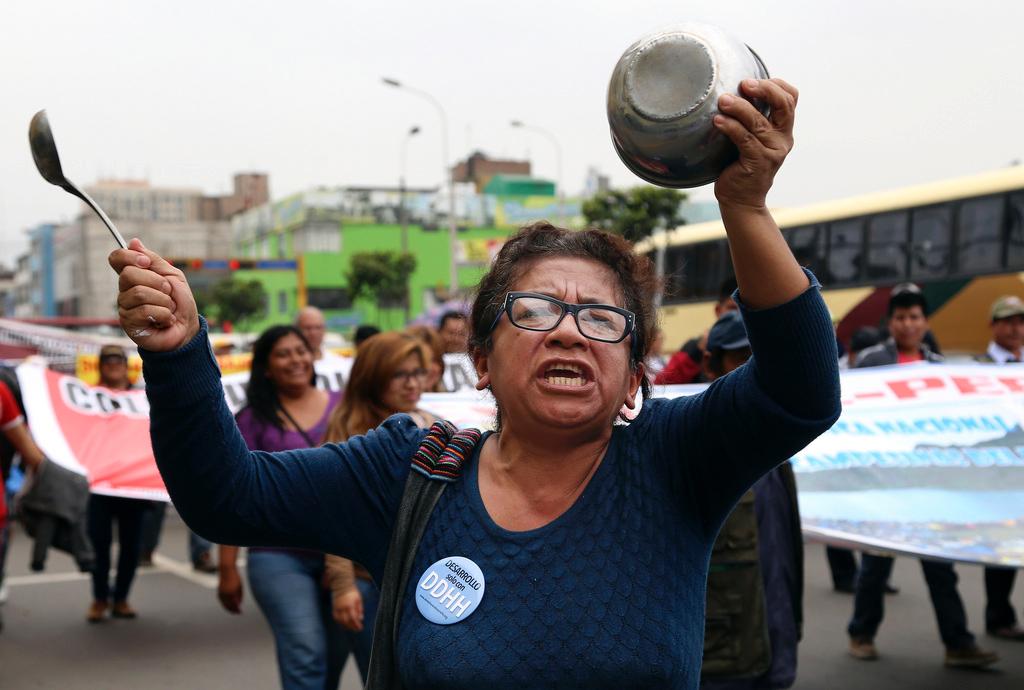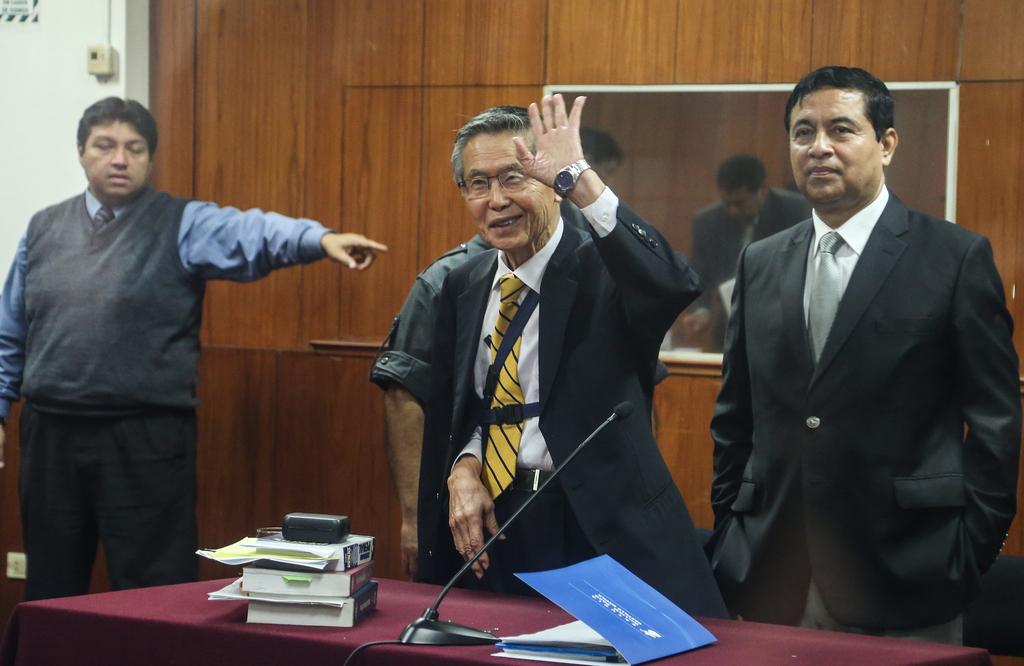Swiss to help Peruvian state manage local coffers

Swiss Economics Minister Johann Schneider-Ammann has signed an agreement in Lima aimed at assisting Peru’s local financial institutions to manage public funds.
The accord, worth $6 million (CHF5.8 million), was concluded on the sidelines of the annual meeting of the International Monetary Fund and the World Bank in the Peruvian capital on Friday.
A second agreement to help Peru improve economic competitiveness was signed on Monday afternoon.
During the IMF-World Bank summit meeting, Switzerland also agreed to participate in three separate programmes with the World Bank. These include the Global Programme for Financial Infrastructures, intended to build more sustainable financial sectors in developing countries, as well as a partnership programme for improving access to water and a project to improve energy efficiency in cities.
More transparency
The Peruvian programme, to be implemented in six regional and five local governments, is intended to bring better governance and transparency to budgetary planning and spending.
The Basel Institute on Governance, specialised in the recovery of stolen assets and which recently announced the opening of its first international office in Peru, will be involved in implementing the project, as well as working with the public prosecutor to strengthen investigations into fiscal fraud and corruption.
Martin Peter, programme manager in Peru for the State Secretariat for Economic Affairs (SECO), told swissinfo.ch that in Peru “more and more resource management was taking place at sub-national levels, by regional and local governments”, as Peruvian institutions continue to decentralise. Approximately 40% of public resources are managed and spent at regional and local levels.
But with regulations for the management of public funds often lacking, he said, “planning or budgeting does not correspond to plans, and execution is not connected to the budget”.
The second bilateral agreement sets an agenda for increasing competitiveness in the production of a number of agricultural products, as well as in tourism.
“Now that commodities prices have fallen, and the economy slowing, Peru has to improve its competitiveness, and increase its productivity, in order to be able to export other goods,” the Swiss official explained. Minerals account for about 50% of Peru’s exports.

In compliance with the JTI standards
More: SWI swissinfo.ch certified by the Journalism Trust Initiative

You can find an overview of ongoing debates with our journalists here. Please join us!
If you want to start a conversation about a topic raised in this article or want to report factual errors, email us at english@swissinfo.ch.